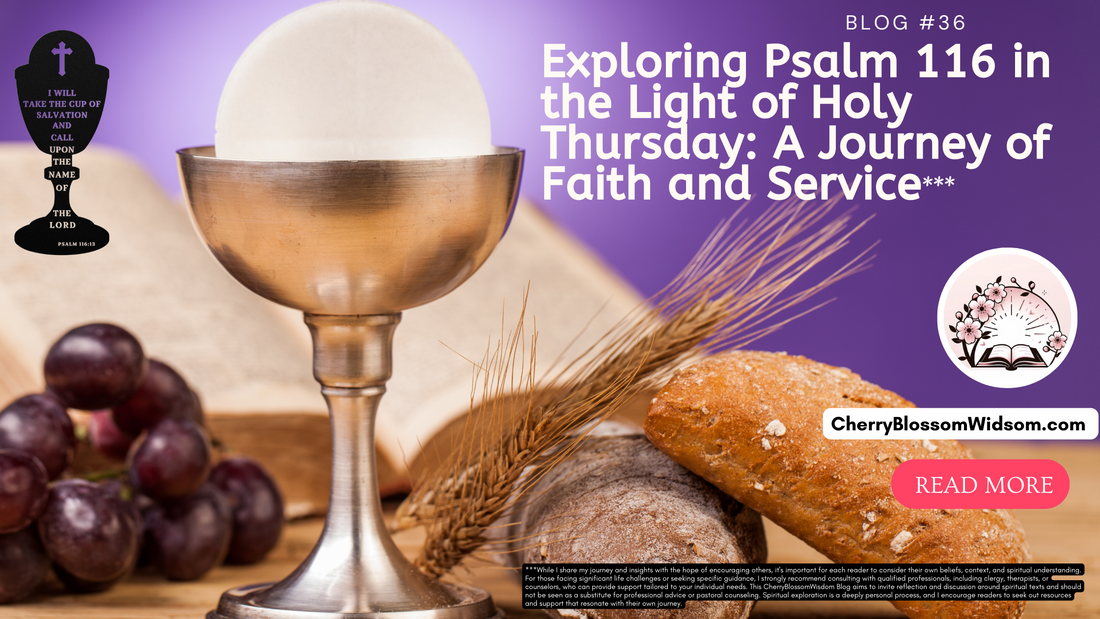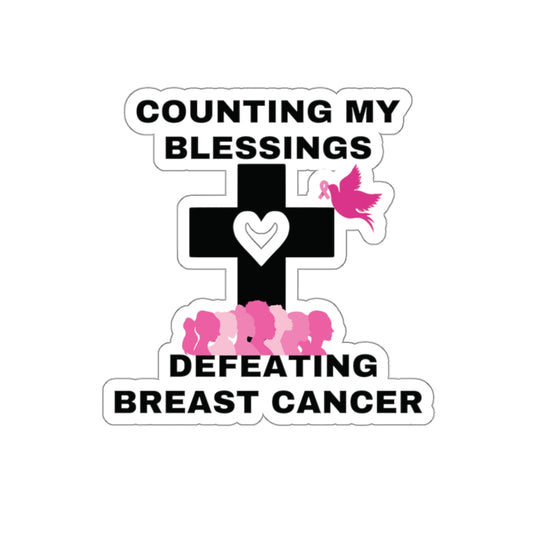Imagine standing in a dimly lit room, the air filled with anticipation and a sense of solemnity. Around you, figures move quietly, preparing for a ceremony that has been observed for centuries. You're not just a spectator; you're about to partake in one of the most humbling acts of service known to humanity - the washing of the feet. This ritual, observed on Holy Thursday, serves as a vivid reminder of the night before Jesus' crucifixion when he washed the feet of his disciples in an ultimate act of love and service. But where do we find the roots of such a profound act? How does it connect to the words of Psalm 116, a passage so rich in gratitude, love, and deliverance? This blog ventures into a verse-by-verse exploration of Psalm 116 (KJV), drawing parallels to the essence of Holy Thursday. It's a journey that reveals the heart of service and humility, as demonstrated by the priesthood and through the symbolic washing of the feet.
Why embark on this journey through ancient texts and traditions? Because in them, we find timeless wisdom in serving and loving one another. In a world craving authenticity and connection, the messages of Psalm 116 and the actions of Holy Thursday offer us a blueprint for living a life of genuine service and humility.
As someone deeply moved by the profound symbolism found in religious traditions and texts, I've spent time studying and reflecting on their meanings. While not a theologian, my journey has been one of heartfelt exploration, seeking to understand and share the rich lessons embedded in these sacred rituals and writings.
In the coming sections, we'll delve into each verse of Psalm 116, unveiling its layers of meaning and connecting them with the principles of service and humility exemplified on Holy Thursday. Alongside, we'll weave in personal reflections, historical insights, and practical applications, inviting you into a space of contemplation and growth. And, we'll close with questions for journaling, offering a personal space for you to reflect on how these ancient teachings resonate with your own journey of faith and service.
The Analysis
Let's dive into the analysis and comparisons, focusing on the rich tapestry of Psalm 116 and its profound connections to Holy Thursday, especially the acts of priesthood and the washing of the feet. We'll explore each verse, seeking to uncover the layers of meaning and how they echo the spirit of service and humility that Holy Thursday embodies.
Verse 1-2: A Cry for Mercy Heard

Right at the outset, Psalm 116 establishes a deep, personal relationship between David and the Lord. It's a relationship marked by trust and gratitude. Similar to the trust and love Jesus showed his disciples on Holy Thursday, even knowing one would betray him. The act of washing their feet wasn't just a service; it was a testament to listening and responding to the needs of others, just as God listens to our cries for help. Washing of the feet is a symbolic practice that has been observed by various cultures and religions throughout history. In Christianity, it is a ritual that is performed on Holy Thursday, also known as Maundy Thursday, to commemorate Jesus washing the feet of his disciples as a sign of humility and service. The act of washing feet is seen as an act of love and respect towards others, and a way of demonstrating care and compassion for those in need. It is also a reminder to be humble and to serve others with kindness and empathy, just as Jesus did.
According to the Bible, when Jesus washed the feet of his disciples, they were initially hesitant and resistant to the idea. This is because in the Jewish culture of that time, washing feet was considered a lowly task reserved for servants and slaves. For the disciples, who were Jesus' closest followers and considered themselves to be his equals, the idea of their leader washing their feet was unsettling and uncomfortable. Peter, one of the disciples, even objected to Jesus washing his feet, but Jesus explained that if he did not wash his feet, he would have no part with him. Although Jesus was facing death, he is trying to teach his disciples the importance of humility and selfless service. By washing their feet, he was showing them that no task is beneath them and that they should always be willing to serve others with love and respect, regardless of their status or position in society.
Verse 3-4: From Despair to Deliverance

Here, the David speaks to the darkest moments of human existence, moments of despair and utter hopelessness. Holy Thursday reflects this despair in the garden of Gethsemane, where Jesus faced his impending death with sorrow yet turned to God in prayer. The Garden of Gethsemane is a place located at the foot of the Mount of Olives in Jerusalem. It is an important location for Christians as it is the site where Jesus Christ prayed and was arrested on the night before his crucifixion. According to the New Testament, Jesus went to the garden with his disciples to pray, but he was overcome with sorrow as he thought about his impending death. He asked his disciples to stay awake and pray with him, but they fell asleep. Jesus then prayed alone, asking God to spare him from the suffering that he knew was coming. However, he ultimately submitted to God's will, saying "Not my will, but yours be done." The Garden of Gethsemane is a significant location for Christians because it represents Jesus' humanity and his willingness to sacrifice himself for the sake of humanity. It is a reminder that even the Son of God experienced fear and doubt, but ultimately put his trust in God. The garden has become a place of pilgrimage for Christians from around the world, who come to pray and reflect on the events of Jesus' final hours.
Holy Thursday is a day that marks such a moment of despair and hopelessness. This is the day when Jesus faced his impending death with sorrow and turned to God in prayer. This is a powerful example of how even in the darkest moments of life, we can turn to a higher power for strength and hope. The story of Holy Thursday illustrates the importance of faith and reliance on divine intervention in our lives.
Verse 5-6: Gracious is the LORD

David's acknowledgment of God's grace, even in the face of human simplicity and frailty, mirrors the humility Jesus demonstrated by washing his disciples' feet. He showed that true leadership and righteousness involve lowering oneself to uplift others, a principle deeply rooted in the mercy and grace of God.
Verse 7-9: Rest for the Soul

In these verses, there's a recognition of the peace and rest found in God's deliverance, much like the peace Jesus offered through his acts and teachings. The "land of the living" represents a life lived in faith and service, echoing the path Jesus laid out for his followers, starting with the humble act of washing their feet.
This path, according to the text, begins with the humble act of washing feet. This act is significant because it demonstrates Jesus's willingness to serve others, even in small ways. It also symbolizes the idea that true leadership is not about power or authority, but about serving others with humility and compassion. By following Jesus's example, his followers could learn to live a life of service and faith, and find peace and rest in God's deliverance.
Verse 10-11: Faith in Despair

David's faith, even when feeling betrayed or let down by others, resonates with Jesus' experience of betrayal. Yet, like Jesus, the David's faith remains unshaken, emphasizing the importance of trust in God over human reliability. Despite the flaws and limitations of humanity, the David finds solace in their relationship with God, recognizing that true strength and security can only be found in Him. By looking to God for guidance and support, we too can find a sense of peace and purpose even in the midst of difficult circumstances.
Verse 12-14: The Vow of Service

David in the text is contemplating how to repay God's incredible kindness. He is considering what he can possibly do to show his gratitude and give back to God for all that God has done for him. However, Jesus demonstrated the ultimate repayment by serving and ultimately sacrificing himself.
When Jesus accepted the "cup of salvation," it was a symbol of his willingness to accept his fate and fulfill his mission on earth. This cup represented the suffering and sacrifice that Jesus knew he would have to endure, but he accepted it willingly because he was committed to his role in God's plan. Furthermore, Jesus' vow to serve even in the face of death is an example of the depth of commitment that we are called to emulate. He showed us that no matter how difficult our circumstances may be, we should always be willing to serve and help others. Jesus' sacrifice and service ultimately led to the salvation of humanity, and his example continues to inspire us today.
Verse 15-16: Precious in the Sight of the LORD

The death of saints, or the faithful, is deemed 'precious' because it signifies a life lived in devotion and service to God, a journey culminating in the ultimate return to the Creator. This reflects the essence of Holy Thursday, where Jesus, knowing his imminent death, still chose to serve and teach about love until the end. It's a powerful reminder that our service, especially in moments of great sacrifice, holds immense value in the eyes of the Lord.
David's declaration of being God's servant, "the son of thine handmaid," echoes the humility and dedication Jesus displayed. It underscores a willingness to serve boundlessly, a message resonating deeply with the washing of the feet. This act symbolized the breaking of bonds, not just the physical dirt of the world but the spiritual and societal bonds that constrain us.
Verse 17-19: A Promise to Praise

In these concluding verses, the David vows to offer thanks and fulfill their promises to God, signifying a life committed to praise and service. This act of thanksgiving parallels the Last Supper, where Jesus, in the company of those he loved, gave thanks to God even in the shadow of his suffering. It teaches us the importance of gratitude and praise, regardless of our circumstances.
The public nature of this commitment, "in the presence of all his people," and "in the courts of the LORD'S house," emphasizes the communal aspect of faith and service. Just as Jesus taught his disciples to serve one another, we too are called to live out our faith and commitments within our communities, serving as a testament to God's love and grace.


In the spirit of sharing forgiveness, I've created a beautiful piece of art, the Responsorial Psalm 116 Metal Wall Art available at MysticalCherry.com
If you're interested, check it out. Remember, purchasing through this link may support the blog at no additional cost to you.
Reflections on Service and Sacrifice
The journey through Psalm 116, juxtaposed with the observance of Holy Thursday, unveils profound lessons on service, humility, and the depth of God's love for us. The washing of the feet, a gesture so simple yet so profound, embodies the essence of our call to serve—one another and God, with humility and love.
In the footsteps of Jesus, who served knowing the cost, we too are invited to embrace service as a way of life. It's a path marked not by grandeur but by genuine acts of love, often in the face of sacrifice, mirroring the David's journey from despair to gratitude and commitment.
 Questions for Further Journaling:
Questions for Further Journaling:
If you journal, you can use these questions to reflect on Psalm 116.- How does the concept of one's life and death being 'precious in the sight of the Lord' impact your understanding of service and sacrifice?
- Reflect on the idea of being a 'servant of God.' How does this identity shape your actions and decisions in daily life?
- Consider the 'sacrifice of thanksgiving' David speaks of. What are you thankful for, and how can you express this gratitude in your life and service?
- The communal aspect of faith highlighted in the final verses speaks to serving and praising in community. How do you see yourself fulfilling this within your own faith community?
Final Thoughts: Walking in the Path of Service
As we meditate on Psalm 116 and the teachings of Holy Thursday, we are reminded of the beauty and depth of a life dedicated to service and love. Through the lens of scripture and tradition, we see the call to humble ourselves, to serve with grace, and to accept our roles as servants of God and each other. As we journey through our faith, let us take the lessons of David and the example of Jesus to heart. May we strive to listen, serve and love with all that we are, making every act of service a reflection of the divine love that guides us. In doing so, we follow the path laid before us, a path of humility, service, and profound gratitude. May your journey through Psalm 116 and the story of Holy Thursday inspire a renewed commitment to service, love, and faith in your life.
Disclaimer: The insights and reflections shared in this blog are based on my personal journey and study. They are not intended as expert theological advice but rather as a starting point for your own exploration and reflection.






















